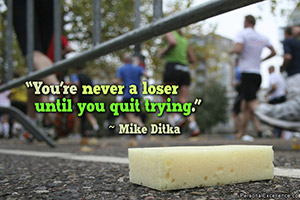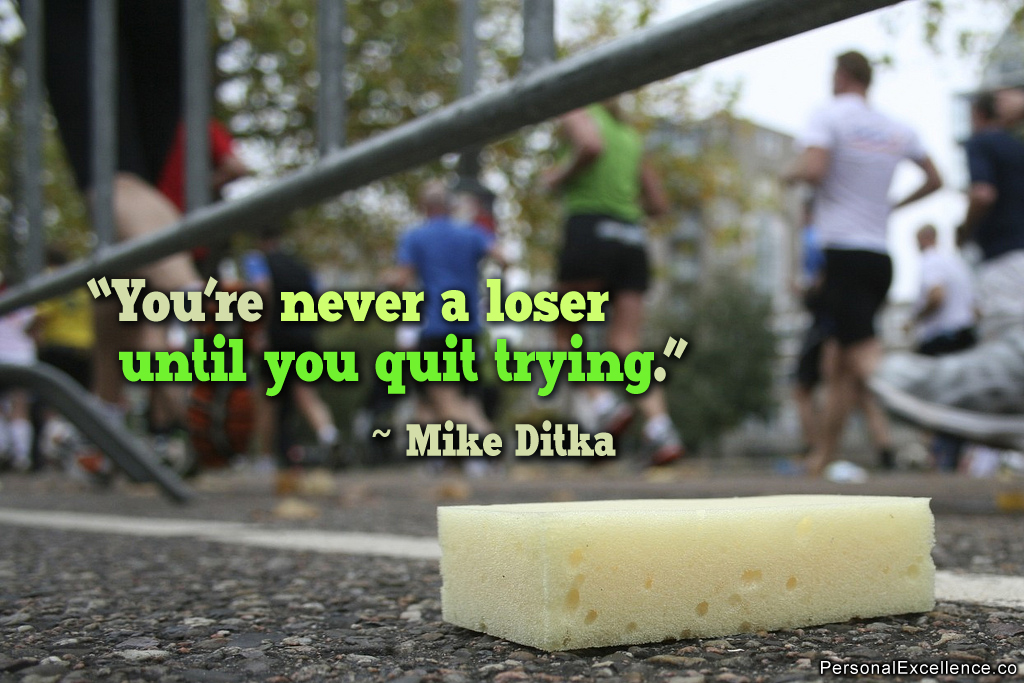This is a guest post by Daniel Wong of Daniel-Wong.com.

Does this sound familiar?
You have a big exam coming up next week, so you know it’s time to hit the books.
You sit down at your study table and start reviewing your notes.
Five minutes later, your phone goes off. It’s a text message from your cousin, Lily. She’s asking about the family trip that you’re going on after your exam.
After exchanging six text messages with Lily, you look at the time. 15 minutes have gone by!
You put your phone aside and get back to reading your notes. 10 minutes later, you get the sudden, overwhelming urge to check your Facebook news feed.
You only intend to spend a few minutes on Facebook, but you end up browsing through three photo albums, commenting on four statuses, and watching two videos.
You decide to update your own status: “Life dilemma: Study for exam or check Facebook. Facebook wins.” All of this takes you another 20 minutes.
I’m sure something like this has happened to you before. It happened to me when I was a student, and most of the students I work with tell me that it happens to them far too often.
But there’s hope. There are simple techniques you can use to win the war against distractions.
Here are six tips for you:
1. Put your phone on silent mode and place it at the other end of the room.
If you own a smartphone, you know how distracting it can be. Facebook, Twitter, email, text messaging and yes, the entire Internet, are at your fingertips.
Even a non-smartphone can be extremely distracting!
As such, I recommend that—at the start of your study session—you put your phone on silent mode and place it far away from you. Preferably, you should place it at the other end of the room.
This way, you won’t be interrupted by phone calls or text messages while you’re studying. You can always check your phone every 30 or 45 minutes when you take a break.
If you’re honest with yourself, you’ll admit that few of the text messages and phone calls you receive require an immediate response, so it’s reasonable to get back to the other person when you’re taking a break.
2. Turn off your Internet access.
You might intend to use your computer for work, but you can easily find yourself on Facebook or YouTube instead. (You know what I mean. :) )
When you’re using your computer, the World Wide Web is literally just a click away. Don’t trust yourself to resist that temptation. Turn off your Internet access before you begin your study session.
If you need to access certain online resources, then download all of the necessary information at the start of your session before you turn off your Internet access.
The Internet is tool that has the power to both entertain and educate. By turning off your Internet access when it’s time to focus, you’re harnessing the power of the Internet effectively.
3. Take a deep breath when you’re about to get distracted.
Distractions come in waves. The urge to watch TV, clear your room (I’m sure I’m not the only one who feels like clearing my room when it’s time to be productive, right?) and check your phone attacks you suddenly—and it can often be overwhelming.
But these intense urges only last for a short while. If you’re able to resist that initial wave, you’ll be able to carry on studying instead of succumbing to temptation.
Here’s how to fight off the urge when it hits you: Close your eyes. Breathe in for two seconds, then breathe out for two seconds. If the urge still persists, repeat until it goes away.
Using this simple technique, you’ll spend four to eight seconds breathing deeply, after which you’ll get back to work. If you don’t use this technique, you’ll probably end up getting distracted for 15 minutes, or even longer.
4. Ask people to give you privacy.
I’m sure that something like this has happened to you before while you were studying:
- Your mom came by to ask you about your day
- Your friend dropped by to chat
- Your younger brother asked you for help with his homework
- Your sister asked you for advice
The list goes on.
Don’t get me wrong; relationships are important. I firmly believe that, in many ways, the quality of your relationships determines the quality of your life.
But when you’re studying, interruptions can be especially disruptive.
Just before you begin your study session, I recommend that you go up to the people who are most likely to disturb you and say something like this: “I have an exam coming up next week, so I need to focus. Would you please give me some privacy for the next two hours and not interrupt, unless it’s something really urgent?”
When you make such an intentional effort to ask others to respect your privacy and your commitment to academic excellence, they’re likely to show you that respect.
5. Get eight hours of sleep every night.
As a student, it seems almost impossible to get enough sleep. There’s always so much homework to do, so many projects to work on, so many activities to participate in, so many friends to hang out with, and so many parties to go to.
Compared to all of these things, sleep seems so unimportant!
But sleep is vital if you want to perform well academically. It’s an established scientific fact that sleep affects your memory, concentration and brain function. If you’re not sleeping enough, you’re not setting yourself up for success in your student life.
When you’re sleep-deprived, you’ll also be easily distracted.
Here are some ways to help you get to bed earlier:
- Have a nightly bedtime routine
- Wind down at the end of the day by reading a book
- Don’t drink caffeine after 3pm
- Go to bed at the same time every day
- Set a nightly alarm to tell you it’s time to go to bed (this has been exceptionally helpful for me!)
6. Use a tool like Asana.com to help you prioritize your tasks.
(Asana.com didn’t pay me to say this, I promise.)
Asana.com is a web-based tool that allows you to conveniently manage projects and prioritize tasks.
I started using Asana.com half a year ago, and I’ve found it to be beneficial in keeping my life organized.
Students often get distracted when they think about all the other tasks they need to accomplish. They start to wonder if they should be working on another assignment or studying for another test instead. This hinders them from focusing on the task at hand.
By using a tool like Asana.com, you’ll be able to stay on top of all of your assignments, projects and other commitments. With a systematic approach towards task management, you’ll make the most of every study session.
In closing…
In our increasingly connected world of smartphones, tablets, laptops and high-speed Internet, distractions are everywhere.
You’ll need to make a deliberate and committed effort to stay on task. I hope these six tips will help you in your quest to become a happy and successful student!
(Image: Andy.Schultz)
About the Author: Daniel Wong is the author of “The Happy Student: 5 Steps to Academic Fulfillment and Success.” He writes about education and career at www.daniel-wong.com.








 Thanks for reading. If you like my free articles, join my private email list and get my latest updates and articles sent right to your inbox.
Thanks for reading. If you like my free articles, join my private email list and get my latest updates and articles sent right to your inbox.